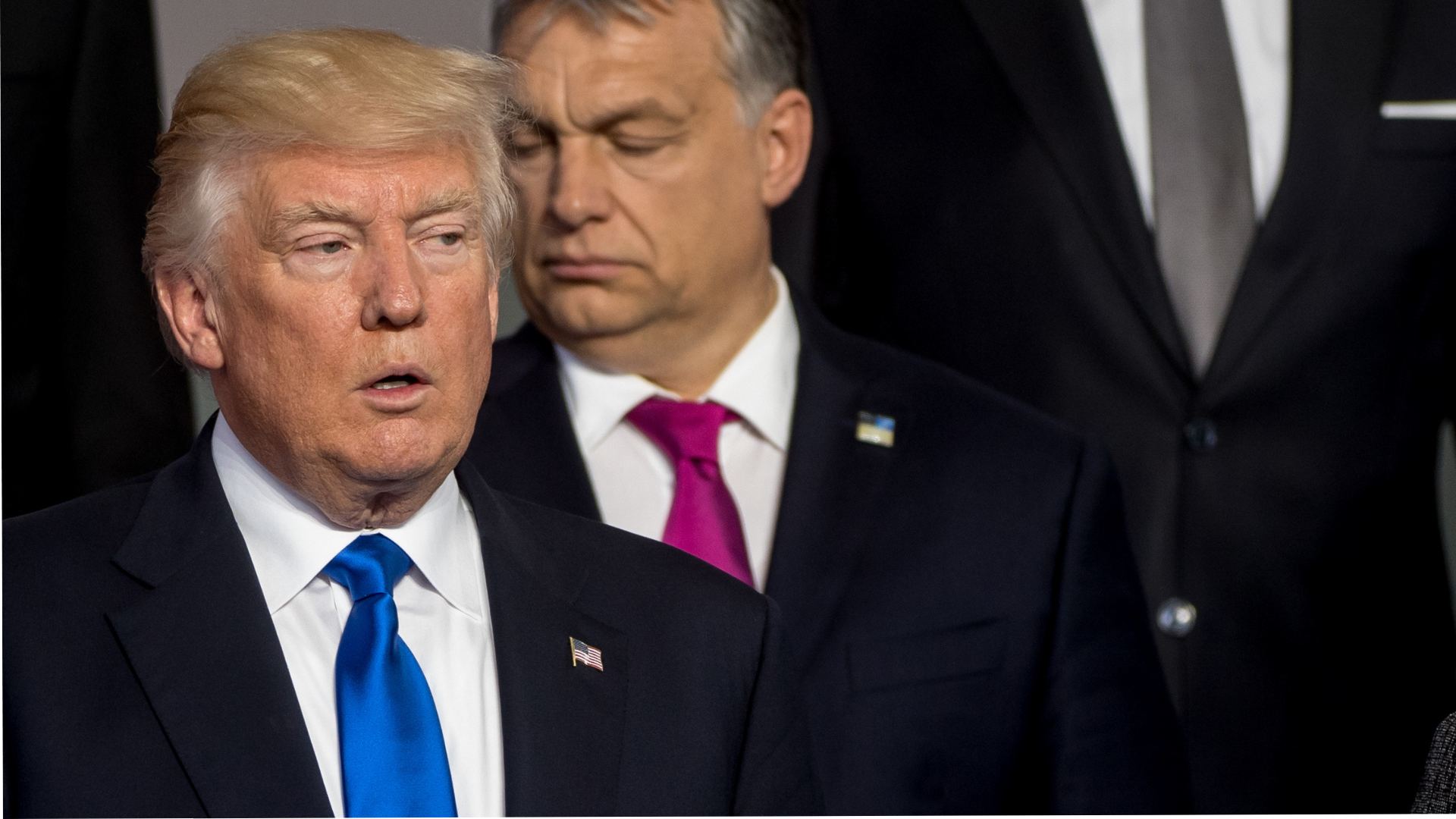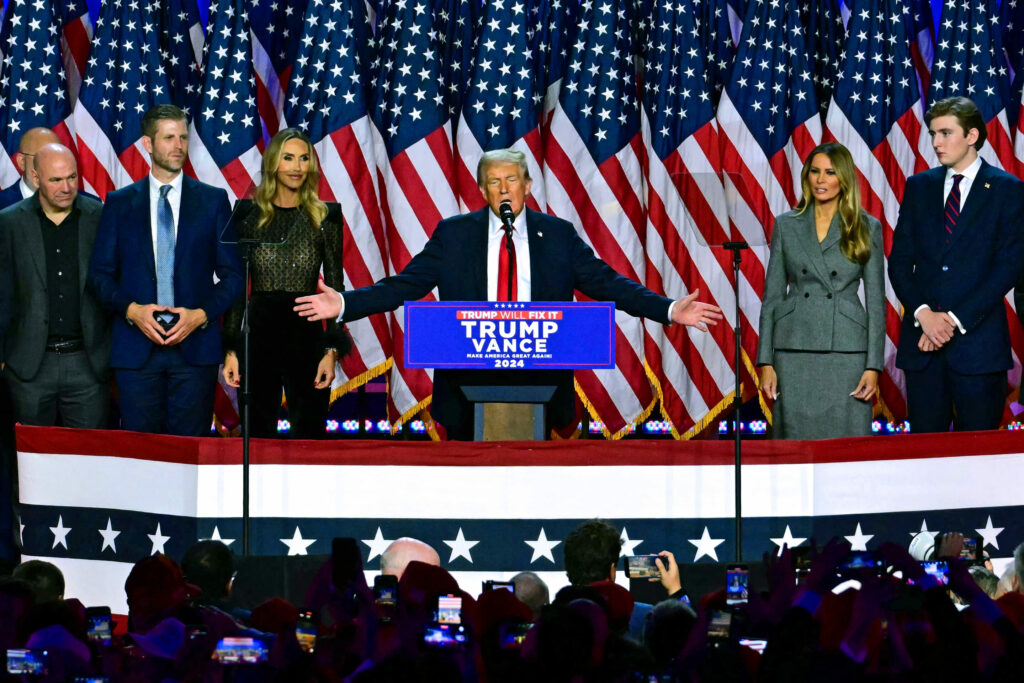Donald Trump has been reelected the 47th President of the United States. It is feared his victory will embolden far-right politicians in Europe, who rushed to congratulate Trump on his return to the White House on Wednesday.
Trump's election victory is being celebrated by millions of Americans, with admiration for the convicted criminal reflected in his remarkable win of the popular vote. However, the outcome has left Democrats in the US and beyond reeling, and there were many disappointed faces at the Democrats Abroad post-election event in Brussels on Wednesday.
"It's difficult to accept what this says about the United States," the Chair of Democrats Abroad, Trip DuBard, told The Brussels Times. "In 2016, it seemed like a fluke, just some angry people voting out of protest. But this time, it seems the nation truly wants a sexual abuser, a convicted felon, and a mob leader to be the president. That's who the nation has chosen."
He argued that Trump's hateful rhetoric has influenced American voters. "In the past, we as Americans have been a pluralistic society and always welcomed everyone," he said. "What's changed in recent years is that he has unleashed racism and misogyny. He has given people permission to show their worst side."
Far-right enthusiasm
It is exactly this mindset that rendered far-right politicians across the Atlantic giddy. They were vocal in congratulating the US President-to-be even before the official voting results confirmed a Trump victory, alongside the many "mainstream" European leaders.
"For the far right in Europe, Trump's victory will be met with enthusiasm," Linde Desmaele, an expert in US-Europe relations at Leiden University, told The Brussels Times. "Political figures such as the Netherlands' Geert Wilders and Hungary's Viktor Orbán have already expressed their joy on social media."
Wilders – often dubbed the 'Dutch Trump' – has said he sees Trump as a kindred spirit and that he would have voted for the Republican if he lived in the US. Meanwhile, Orbán posted a message on Facebook, which read "[Trump] on his way to a beautiful victory." Unlike other EU leaders, he openly endorsed Trump's second presidential bid.
Normalising far-right strategies
These first reactions reflect what experts feared in the run-up to the election outcome, namely that far-right leaders, politicians and movements will feel empowered by Trump's electoral triumph.
However, to understand the effect of Trump's second term on the far-right in Europe, his impact since his success in the 2016 elections cannot be ignored.
"He played a symbolic role in the formation of several far-right European parties, including Fidesz, National Rally, League, and Party for Freedom, who regard him as a quasi-messianic figure," said Georgios Samaras, Lecturer (Assistant Professor) in Public Policy at King's College London.

US President-elect Donald Trump and Hungary's Prime Minister Viktor Orbán. Credit: Belga
Trump's first term in the Oval Office ignited the far-right flame across the continent. Since then, right-wing rhetoric has steadily permeated the political mainstream. As opposed to 2016, Trump is now coming into office at a time when a hotbed of political parties share his rightward mix of authoritarianism and populism in Europe.
Experts from Spain's Esade University warned that Trump may prefer to meet with European leaders sharing similar ideologies, such as Orbán and Wilders, who may then serve as intermediaries between Brussels and Washington D.C. "This would effectively sideline the EU from the conversation and strengthen their parties' position because of their privileged access to negotiate with Trump," Esade University's Joan Villoslada said.
In countries where far-right parties are on the edge of gaining power, Trump's victory may tilt the balance. It is also feared his second term, featuring a policy agenda that openly champions far-right ideologies, pushing for extreme immigration control and culture wars attacking minority groups, will "recalibrate the European far-right's strategies, potentially driving a further normalisation of extreme right-wing politics across the continent."
As seen in the topic of immigration, the normalisation of these ideas is already pushing the centre-right to take more extreme stances, such as re-introducing border controls in the Schengen area, in the face of becoming irrelevant.
Desmaele argued that, while the constancy and scale of Trump's success are remarkable, references to a 'wake-up call' for Europe are hardly appropriate. "One of the big challenges for Europe will be to maintain unity and prevent Trump from sowing discord on the continent," she said.

